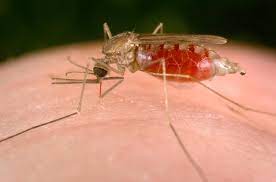Malaria, a formidable adversary in the realm of infectious diseases, continues to cast its shadow over numerous regions worldwide. As we delve into the intricacies of this mosquito-borne illness, it becomes evident that understanding and combatting malaria is crucial for global health. In this article, we explore the key aspects of malaria, its impact on populations, and the ongoing efforts to mitigate its prevalence.
The Culprit: Plasmodium Parasites
At the heart of malaria lies the Plasmodium parasite, with Plasmodium falciparum being the most deadly species. Transmitted through the bite of infected female Anopheles mosquitoes, these parasites embark on a journey through the bloodstream, invading red blood cells and triggering the characteristic symptoms of malaria.
Global Impact: A Silent Epidemic
Malaria disproportionately affects vulnerable populations, particularly in sub-Saharan Africa, where the majority of malaria-related deaths occur. The disease exerts a heavy toll on children under the age of five and pregnant women, making it a formidable impediment to child health and maternal well-being. Furthermore, malaria poses a significant economic burden on affected countries, hindering socio-economic development.
Symptoms and Diagnosis: Unmasking the Silent Invader
Malaria manifests with a range of symptoms, including fever, chills, and flu-like illness. Timely and accurate diagnosis is crucial for effective treatment. Rapid diagnostic tests and microscopic examination of blood samples are common methods used to identify the presence of Plasmodium parasites.
Treatment and Prevention: A Two-Pronged Approach
Artemisinin-based combination therapies (ACTs) stand as the frontline treatment against malaria. However, the emergence of drug-resistant strains poses a serious threat, underscoring the need for ongoing research and development of new antimalarial drugs.
Preventive measures play a pivotal role in the fight against malaria. Insecticide-treated bed nets, indoor residual spraying, and antimalarial prophylaxis contribute to reducing mosquito bites and curbing the transmission of the disease.
Global Initiatives: Uniting Against Malaria
International organizations, governments, and non-profit entities are working collaboratively to combat malaria. The Roll Back Malaria partnership, the Global Fund, and the World Health Organization are spearheading initiatives to enhance surveillance, improve access to treatment, and promote research and development for new interventions.
Research Frontiers: Towards a Malaria-Free Future
Advancements in genomics, vaccine development, and innovative vector control strategies offer hope for a malaria-free future. Efforts are underway to develop an effective malaria vaccine, with promising candidates undergoing clinical trials.
In conclusion, the battle against malaria requires a multifaceted approach involving prevention, treatment, and ongoing research. As we strive for a malaria-free world, raising awareness, supporting global initiatives, and fostering innovation are key to overcoming this persistent threat to public health. Together, we can turn the tide and consign malaria to the annals of history.






























